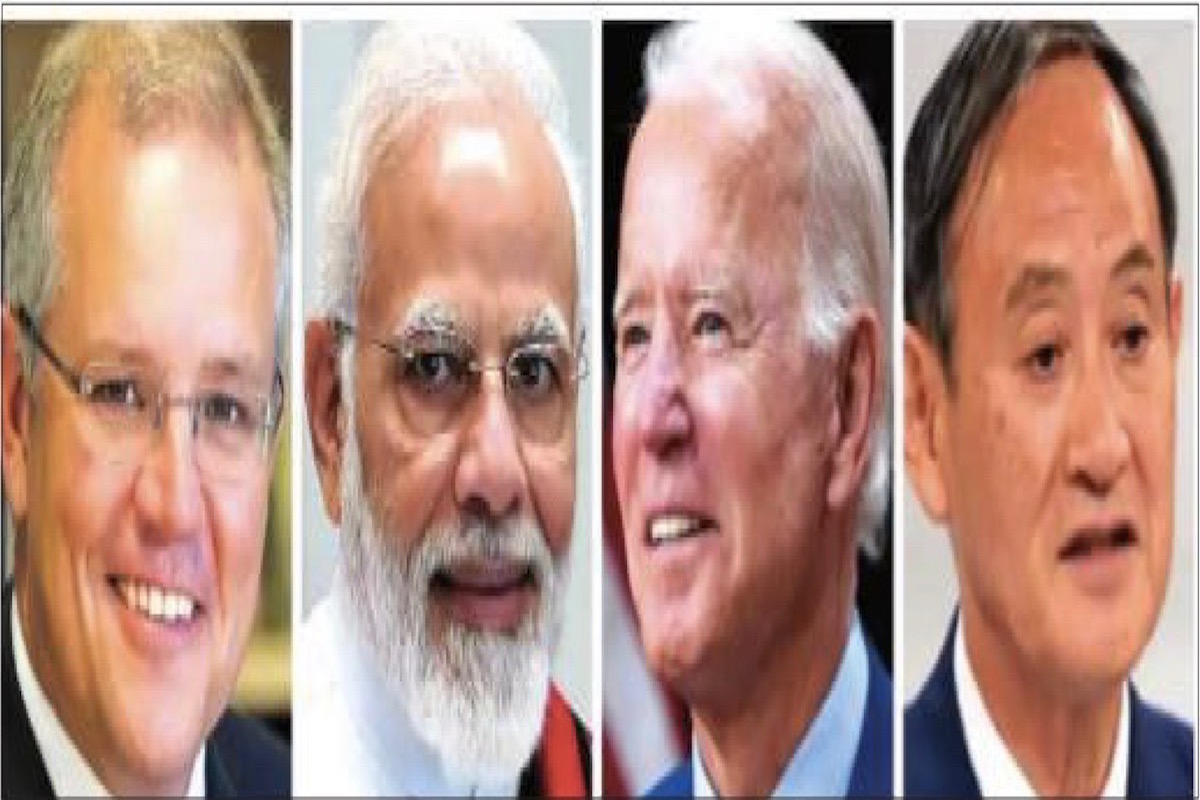Intel appoints Santhosh Viswanathan as India region head
Chip maker Intel on Friday said that it appointed Santhosh Viswanathan to head the India region business as its Managing Director (MD).
The bull case scenario would be to read the summit as marking a seminal shift in US policy which presupposes Washington prioritising working with India, Japan, and Australia rather than NATO on the world stage.

An examination of the direction in which the strategic quadrilateral grouping of USA, India, Japan and Australia – or the Quad – is headed after its first ever summit-level meeting over the weekend is not without its pitfalls.
The focus of the Quad’s joint communique was on a unified fight against the Covid-19 pandemic including ramping up the vaccination programme and closer coordination on securing a rules-based order in the Indo- Pacific. But that doesn’t really tell us much about what the grouping’s approach towards the elephant in the room, China, will be. To make such an assessment, it may be useful to borrow stock market terminology to outline the contours of three broad scenarios which may unfold ~ the bull, base, and bear case scenarios.
The bull case scenario would be to read the summit as marking a seminal shift in US policy which presupposes Washington prioritising working with India, Japan, and Australia rather than NATO on the world stage. That’s a massive call. Yet, there are many who believe the Quad summit leaves no doubt on the strategic choice the Joe Biden Administration has made ~ China not Russia has been flagged as the USA’s principal adversary. As a corollary, it is indicative of Washington’s thinking that the contest for global power has shifted quite definitively from Europe to Asia.
Advertisement
The base case scenario is that America looks at China as a rival and not an adversary and underlines the relative advantages the USA already possesses. The argument is that while competition will remain the defining trait of the relationship, both countries will have to continue to engage on common challenges that neither can solve on its own such as health pandemics, global economic recession, climate change, and nuclear non-proliferation.
The USA, hold those who subscribe to this school of thought, will have greater success in outpacing China economically and outshining it on governance parameters if it focuses more on improving its own condition domestically and less on trying to impede Chinese initiatives. It is in the US’ interest not to stand in Beijing’s way and turn a rising power into an enemy in the process, but to renew America’s advantages in its competition with China. The Quad serves a purpose in this regard, but a limited and not dominant one.
As for the bear case scenario, it assumes a utilitarian approach by Washington towards the Quad – something the Chinese have been emphasising to spook India in particular but Australia and Japan too. This worst-case prediction envisages the US cutting a deal with Beijing in the future leaving other members of the nascent Indo-Pacific alliance high and dry.
Such a scenario coming to fruition would have a debilitating impact, for example, on India’s strategic aims given its border dispute with China taken in conjunction with the latter’s growing influence in South Asia and heft in blocs of which both countries are members such as BRICS and the SCO. This would mean Beijing could make life very difficult indeed for New Delhi.
Advertisement